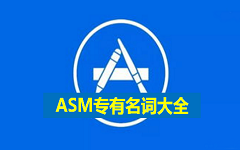Named Entity Recognition (NER) systems often demonstrate great performance on in-distribution data, but perform poorly on examples drawn from a shifted distribution. One way to evaluate the generalization ability of NER models is to use adversarial examples, on which the specific variations associated with named entities are rarely considered. To this end, we propose leveraging expert-guided heuristics to change the entity tokens and their surrounding contexts thereby altering their entity types as adversarial attacks. Using expert-guided heuristics, we augmented the CoNLL 2003 test set and manually annotated it to construct a high-quality challenging set. We found that state-of-the-art NER systems trained on CoNLL 2003 training data drop performance dramatically on our challenging set. By training on adversarial augmented training examples and using mixup for regularization, we were able to significantly improve the performance on the challenging set as well as improve out-of-domain generalization which we evaluated by using OntoNotes data. We have publicly released our dataset and code at https://github.com/GT-SALT/Guided-Adversarial-Augmentation.
翻译:名为实体识别系统(NER)的分布数据往往表现良好,但从一个变化分布中提取的例子中表现不佳。评估NER模型一般化能力的一种方法是使用对抗性实例,很少考虑与被点名实体相关的具体变异。为此,我们提议利用专家指导的超常性能来改变实体标志及其周围环境,从而改变实体的对抗性攻击类型。我们利用专家指导的超常性能,扩充了CONLL 2003 测试组,并人工加注了该测试组,以构建一个高质量的挑战性数据集。我们发现,在CONLL 2003 培训数据方面受过培训的最先进的NER系统在挑战性数据集上表现显著下降。通过对对抗性强化培训实例的培训,并利用混合来规范化,我们得以大大改进挑战性数据集的性能,并改进我们利用OntoNotes数据评估的外向外概括化。我们在https://github.com/GT-SALT/Guided-Aversari-Augmentation上公开公布了我们的数据集和代码。我们已在https://githubb.com/GT-SALT/Guid-Augard-Augment。



